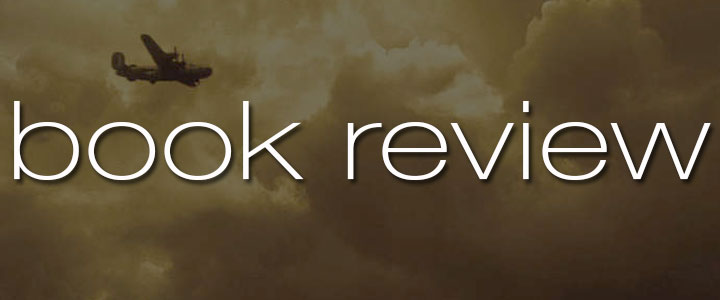
Unbroken: A World War II Story of Survival, Resilience, and Redemption
by Laura Hillenbrand
Published: November 16, 2010
Genres: Biography, Non-fiction, World War II
Format: eBook (473 pages)
Source: Purchased
moreOn a May afternoon in 1943, an Army Air Forces bomber crashed into the Pacific Ocean and disappeared, leaving only a spray of debris and a slick of oil, gasoline, and blood. Then, on the ocean surface, a face appeared. It was that of a young lieutenant, the plane’s bombardier, who was struggling to ...
Short and Sweet Version
Laura Hillenbrand knows how to write a non-fiction memoir that is just as compelling as the best fiction out there. Skip the movie and read Unbroken. This amazing memoir is about the Pacific front of World War II against Japan that most people don’t know very much about.
Jessica Thinks Too Much Version
Mild spoilers ahead! This spoiler warning is for those very sensitive to any spoilers. Major spoilers look like this > View Spoiler »
Apparently I have this idea in my head that memoirs are written about perfect people who were born with more strength than the rest of us losers. Maybe that’s true of other memoirs, but it wasn’t true of Unbroken. This memoir doesn’t idolize him.
Unbroken was upfront and honest about Louie’s faults, especially about him being a troublemaker as a child. His older brother Pete saw potential in him. Instead of seeing a troublemaker, Pete saw a competitive boy who wanted attention. It was a reminder to me to look for the good in my kids. This morning my oldest son was bossing around his younger brother. Instead of reminding him (again) that he’s not in charge of his brother, I saw a young boy who wanted more responsibility. Sometimes all it takes is seeing your weaknesses as strengths. When Louie starts to see that the “bad” qualities he had as a child could help him survive, I was touched.
From earliest childhood, Louie had regarded every limitation placed on him as a challenge to his wits, his resourcefulness, and his determination to rebel. The result had been a mutinous youth. As maddening as his exploits had been for his parents and his town, Louie’s success in carrying them off had given him the conviction that he could think his way around any boundary. Now, as he was cast into extremity, despair and death became the focus of his defiance. The same attributes that had made him the boy terror of Torrance were keeping him alive in the greatest struggle of his life.
-Laura Hillenbrand, Unbroken: A World War II Story of Survival, Resilience, and Redemption (p. 148).
I was floored by how many things Louie survives. Just one of his life events would be enough to turn into an inspiring memoir. Louie survived a plane crash, was lost at sea and almost starved to death (they had food but one guy ate it all), were attacked by sharks while repairing their rubber raft that had holes in it because they were shot at by enemy planes, was a soldier in World War II, and became a prisoner of war with concentration camp conditions in Japan.
When Louie and some of the men at the POW camp were trying to escape, the plan involved going across the sea in a small motor boat. Louie didn’t see that as a problem at all compared to drifting 2000 miles in the open ocean with no food. If nothing else, it reminded me that trials can help you say “I’ve had worse.”
I was surprised how long the story went on after Louie came home from the POW camp. It didn’t paint this happily ever after picture. It talked realistically about the physical and emotional scars that Louie and other POW prisoners had the rest of their lives. Louie was rescued physically but the story continued until he was free emotionally as well.
When Laura Hillenbrand first interviewed Louie about his story, the thing that drove her to write this book was to find out how someone could forgive such horrific abuse. Forgiveness is what Unbroken is about. And that’s why the movie sucks because it skims over the forgiveness part of the story. Oh and the fact that the climax in the movie is anti-climatic because even though Louie holds that beam over his head forever the guards beat him with a stick anyway (which does not happen in the book). LET HIM WIN OH MY GOSH. But that’s another post.
The reason Laura Hillenbrand writes such compelling non-fiction is because she knows what NOT to put into her book. I can tell that Laura’s research could easily be thousands of pages long and she has a gift for knowing what to leave out. (This is a gift I need. I feel the need to put every single thought in my book reviews.)
Laura’s selectiveness shines the most for me in her characterization. She gives you one characteristic about each character that is easy to remember and then doesn’t info dump all the other details about the character. It made it so I could say “Oh that’s the guy with the girlfriend at home.” Of course there’s more to the characters than that. As we got to know them through the book, I could attach the new things I learned to that one interesting characteristic so I could keep them all straight.
Another thing that Laura Hillenbrand is beyond talented at is giving the reader a sense of the time period. I loved how she tied all the famous events of the time together with the flight of the Zeppelin. Unbroken helped me learn history by seeing how the world and times affected one person. Laura describes her own writing process better than I could.
You can’t truly understand an individual unless you understand the world he or she inhabits, and in illustrating that individual’s world, you will, hopefully, capture history in the accessible, tactile, authentic way in which the times were actually experienced. In Unbroken as in Seabiscuit, I tried to paint portraits not just of individuals, but of their times.
-Laura Hillenbrand, Unbroken: A World War II Story of Survival, Resilience, and Redemption (Reading Guide)
It wasn’t until reading Unbroken that I realized non-fiction can do something amazing that fiction can’t. Non-fiction can tell you details that people inside the story don’t know. This doesn’t work in fiction because we think the characters are dumb if they don’t know things that we do. But it totally worked in Unbroken because they weren’t dumb – they just couldn’t see everything like we can from this vantage point of looking at these events as the past.
I never realized how little I knew about the Pacific side of World War II until Laura Hillenbrand pointed it out in the interview at the end of the book.
I’m troubled by the fact that when World War II is taught in schools, the lessons focus almost entirely on the European war.
-Laura Hillenbrand, Unbroken: A World War II Story of Survival, Resilience, and Redemption (Reading Guide)
Do you agree with the author’s statement that in the US people hardly learn anything about the pacific side of the war?
I totally agree. I’m so grateful that Laura wrote this book to help me understand the events surrounding that side of WWII. All I remember learning in school was that the US dropped the atomic bomb and the war was over. The saying about winning the war in the Pacific “one damned island after another (page 65)” made me see how hopeless the war must have been. I was shocked at the statistics that more people died in airplane accidents than in actual combat. I’m so glad that I learned in such a fascinating way about this important time in history.
This post contains affiliate links and I receive a small percentage of sales made through these links.
Reading this book contributed to these challenges:










 My name is Jessica. I love to read Young Adult and classic literature. I’ve been a book blogger for six years and I haven’t gotten tired of it yet. I’m a very curious reader. Writing about all the questions and thoughts I had while reading a book is the best hobby ever.
My name is Jessica. I love to read Young Adult and classic literature. I’ve been a book blogger for six years and I haven’t gotten tired of it yet. I’m a very curious reader. Writing about all the questions and thoughts I had while reading a book is the best hobby ever.
I never finished this one. I keep telling myself I’ll get back to it but, honestly, I don’t think I will.
I loved this book. I’m fascinated with WWII but this was a side that I never really read too much on – the war in the South Pacific. His story just blew me away. I actually kind of liked the movie, insomuch as that there was SO MUCH in the book, I was wondering how they would fit it all into a movie. At least the got The Bird right on – what a creepy individual. But yeah, they missed a lot of important info.
Rebecca @ The Portsmouth Review
Follow me on Bloglovin’
Great review! I agree with everything you said! I LOVED this book! I watched the movie after finishing, and I was sad they didn’t show the after war stuff. Those parts really moved me. Great book!
This blog is so cool. I don’t know any other book blogger who reads as diverse a selection of books as you do! This one doesn’t sound like quite my cup of tea…I’ve read enough World War II nonfiction stories to last a lifetime.
I started this one, wasn’t in the mood then watched the movie instead. Now I have to go back and finish it. Great review.